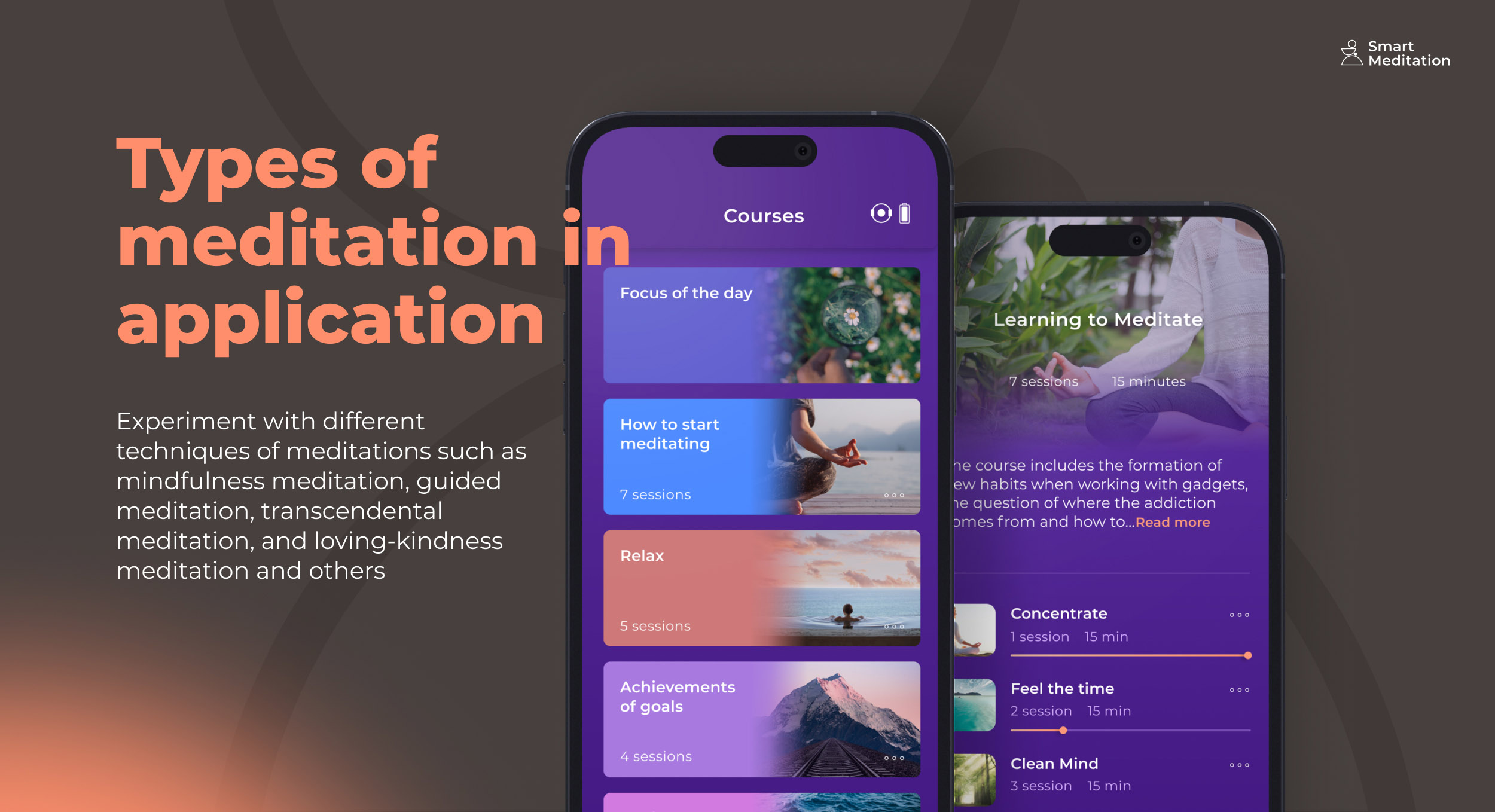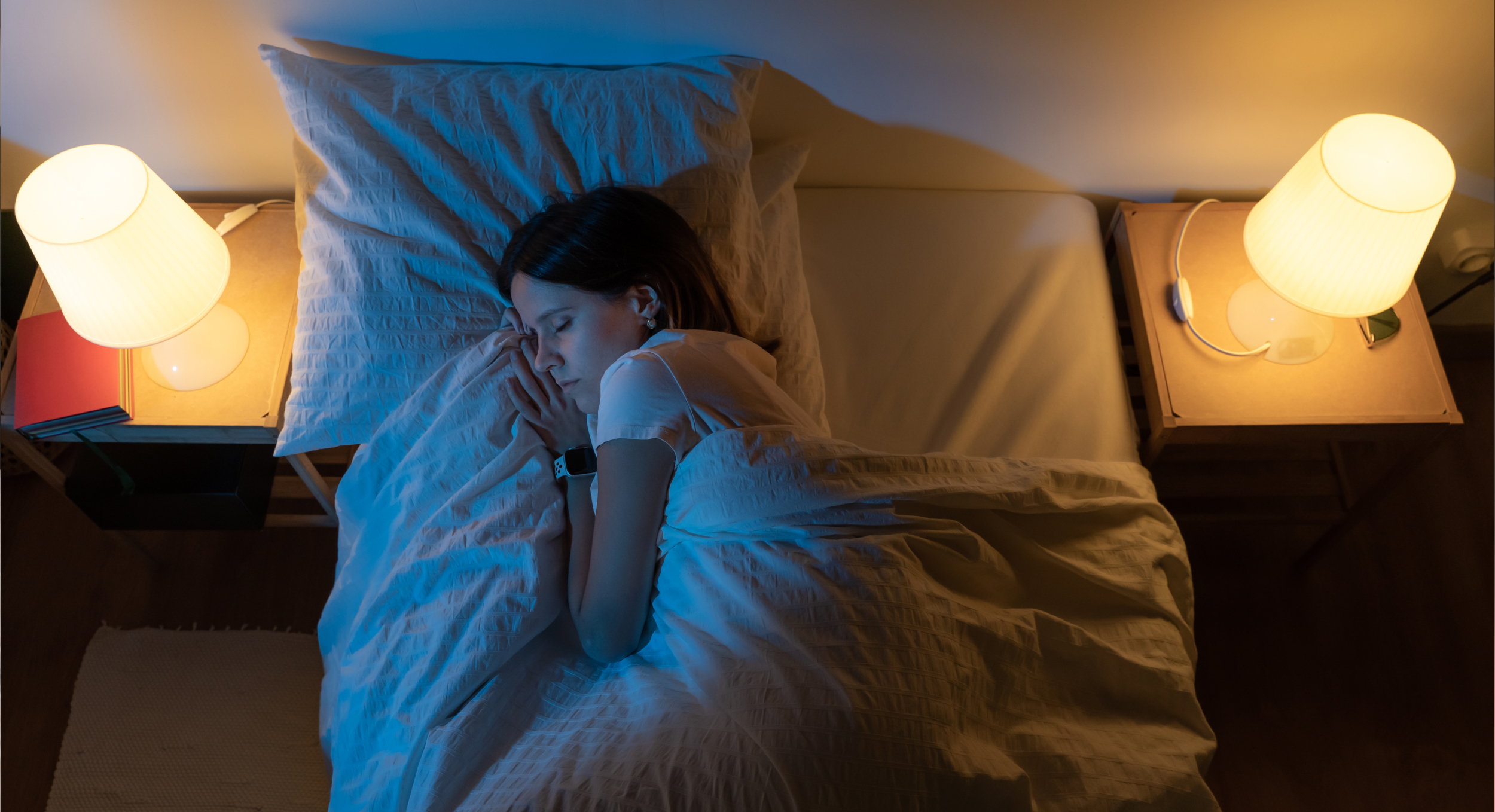
How To Choose A Meditation App For Anxiety
Over the last decade, we have seen a huge rise in the popularity of many meditation apps such as Calm, Headspace and Breethe as well as our Smart Meditation app. And it’s completely unsurprising, because these apps create a user-friendly, interactive platform to engage with your favorite meditation activities and help with anxiety relief.
At the same time, you’ll be well-advised to choose your meditation app with great care. There are way more subpar and overpriced apps than there are good ones – ones that are actually scientifically supported and proven. That’s why in this article we’re looking at the five main factors that you need to consider when picking the best meditation app for anxiety.

Factors To Consider When Choosing A Meditation App
We’ve highlighted five most important factors to take into account when deciding on which meditation app to use. These are:
Cost
For many people, cost would be the dealbreaker when choosing between apps for meditation for anxiety. And for a good reason – your meditation app should offer you best value for money. Determine how much money you’re ready to spend and compare the pricing of as many meditation apps as you can find. Don’t forget to compare the app’s functionalities against their prices as well – for some apps you may have to pay big, but they will also offer you the resources of the highest quality.
Some premium apps could provide extra features, like individualized coaching or access to a user community, both of which can massively improve your meditation experience. Likewise, there are several great cost-free meditation apps available, however, they won’t be able to offer as much.
In terms of payment models, some applications provide free basic functionality (Insight Timer) or a free trial (Unplug), others will need a subscription (Smart Meditation) or will even allow for a one-time fee for a lifetime full access (Simple Habit).
Types Of Meditation
Finding a meditation app that offers a wide variety of meditation types can considerably improve your experience because different techniques work better for different people. Mindfulness meditation, guided meditation, transcendental meditation, and loving-kindness meditation are only a few of the most popular practices out there – and you shouldn’t be afraid to experiment with them.
You may face a slight problem, though, if you’re seeking just one specific style of meditation, because the apps don’t always advertise which ones are included in their library of tracks. That means you may need to make your choice through trial-and-error. Download a number of apps, see what they offer you (if you can do it without having to pay), and make a better-informed decision on your anti anxiety meditation app.
Scientific Proof
There exists a misconception that all or, at least, most meditation applications are research-backed. And it’s not exactly the case – look for an app that can prove it collaborates with professionals in the field of mental health and offers content that is supported by scientific research.
Unfortunately, there aren’t any official organizations that regulate and assess meditation apps. However, there are smaller-scale nonprofit initiatives such as PsyberGuide that seek to rate and review mental health apps in a fair and impartial manner. You can also check out a meditation app evaluation model from the American Psychiatric Organization. Its website guides you through whether an app has scientific backing, whether its use of personal data is transparent, and how simple it is to use. You may use these tools to make sure that any apps you download are reputable, secure, and user-friendly.
User Reviews
You may learn a lot about the app’s overall value and its potential to help people manage their anxiety by reading reviews and user testimonials. Look at user feedback on the app’s usability, and specifically on whether the app helps with relieving anxiety. You may want to pay closer attention to comments and reviews that mention decreased stress levels, better sleep, and increased general wellbeing.
At the same time, it’s vital to remember that what works for one person might not work for another since everyone has a different experience with meditation. So when selecting the best anxiety meditation app, look at user reviews as a guide but ultimately trust your own judgment and instincts.
Customization Options
Lastly, one more important aspect to think about while choosing a meditation app for anxiety is the app’s customization capabilities. The best meditation apps for sleep and anxiety should include personalization features that let you adjust your meditation sessions to whatever is working for you.
Look for apps that allow you to create reminders for regular meditation practice and that include configurable session lengths, background music, and sound choices. Your user experience might also be positively affected by the ability to change the meditation coach’s voice. Some apps even offer progress monitoring and customized meditation tips based on your experience so far.

Conclusion: How To Select The Best Meditation App For Anxiety?
If you want to pick up a meditation app, remember that not all of them are fairly priced and boast rich functionality. Choose an app that makes sense for you financially and that is backed by scientific research. It’s also a good idea to study the app’s customization capabilities and the types of meditation practices it offers before you commit to something. Lastly, take user reviews into account – previous experiences of other people are good sources of information of whether it is good or not.
For one of the best meditation apps for depression and anxiety, we recommend trying out our Smart Meditation app that offers a great balance of pricing and capabilities.





